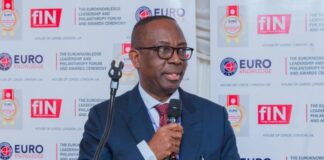General News
Politics
Recommended
Entertainment
12-year-old Ghanaian Jude Kofie nominated for Pianote Awards in USA
Graphic Showbiz
Showbiz News
Feb - 07 - 2024 , 19:15
US-based Ghanaian pianist Jude Kofie, aged 12, has been nominated for the maiden edition of the...
Entertainment
Bongofari for AFCON concerts
Fast-rising Afro-Reggae act, Bongofari, will be in Cote d’Ivoire from January 12 for concerts in connection with the upcoming Africa Cup of Nations (AFCON)...
Business
Goldstar Air To Globalize Ghanaian Music And Movies
International airline Goldstar Air, the wings of Ghana, has set its sights on becoming a leading contributor to Ghana's Gross Domestic Product (GDP), taking...
Health
Erections Lasting More Than 30 Minutes Are Bad for Men- Professor...
Prof. Ademola Popoola of the University of Ilorin's Department of Surgery has issued a warning, stating that a penile erection that lasts longer than...
Opinion
Economic Witch-hunting and the Price of Progress: Ghana ‘s Silent Betrayal...
In an age when nations rise on the backs of visionaries, Ghana seems caught in a paradox: the celebration of mediocrity has become a...

































